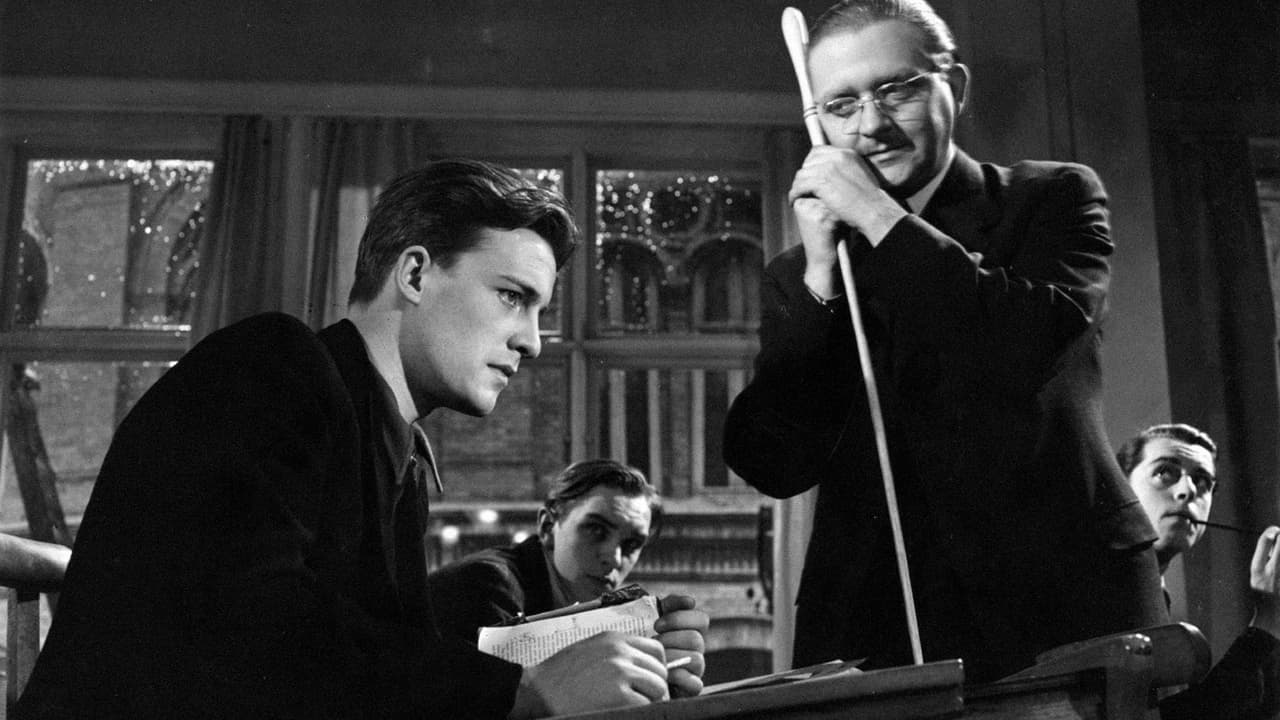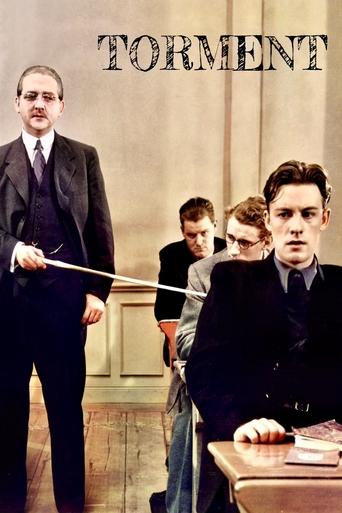MoPoshy
Absolutely brilliant
Teddie Blake
The movie turns out to be a little better than the average. Starting from a romantic formula often seen in the cinema, it ends in the most predictable (and somewhat bland) way.
Darin
One of the film's great tricks is that, for a time, you think it will go down a rabbit hole of unrealistic glorification.
J. Spurlin
In contrast with his best friend at school, who cites Strindberg's and Nietzsche's cynical views on women, Jan-Erik Widgren considers himself an idealist, who believes there's a chaste woman out there for him. But the adolescent schoolboy's first love proves to be a loose girl he finds stumbling around drunk one night. They become lovers, even though she has another man in her life - a man she says bullies and torments her. Meanwhile, Jan-Erik is poised to fail at school, thanks to a sadistic schoolmaster - a browbeating teacher of Latin whom all the boys refer to as Caligula.The title sequence promises a thriller, and there are sequences that seem prepared to fulfill that promise; but it never quite pans out. The story never quite pans out as satisfactory drama either, despite some acute observations by the wiser characters and good performances from everyone. Ingmar Bergman's script comes off like gleeful revenge against an actual schoolmaster he knew.The best thing about the movie is the gorgeous black-and-white photography from Martin Bodin, under Alf Sjöberg's direction, filled with sinister shadows of domineering figures and clutching hands and low angle shots revealing shadow-strewn ceilings.
bandw
Jan-Erik Widgren, near graduation at a Swedish secondary school, is at particular odds with his sadistic Latin teacher whom the students have nickname "Caligula" (in honor of the reputedly cruel and sexually perverse Roman emperor). Maybe not everyone has had a teacher who is as strict a disciplinarian as Caligula, but most likely they have had a teacher provoke an emotional reaction similar to Jan-Erik's. If the classroom scenes don't make you break out in a cold sweat, they are likely to give you nightmares. At fist I thought the classroom scenes were too long, but they are essential in establishing Caligula's personality and the relationship between him and Jan-Erik. The dark shadow that Caligula casts over the proceedings is tempered somewhat by the rather benevolent personality of the older Headmaster; one of the best scenes in the movie has the Headmaster giving Caligula a crushingly frank personality appraisal.Jan-Erik has more of the temperament of an artist than that of a Latin scholar and he has his hands full in trying to deal with Caligula, but he also gets involved with a woman of questionable moral character who complicates his life. Additionally he is in conflict with his upper-class parents who have expectations of him that he does not satisfy. He is a tormented man. But, as you would expect from a Bergman screenplay, serious emotional complexities ensue as the plot develops. You come to understand that everyone in the film is living with their own personal torment-- Jan-Erik, his parents, his woman friend, and the school's headmaster. In a final ironic touch we see that it is Caligula who is the most tormented of all, he understands that he is an ass but he cannot help himself.While Bergman did not direct this it would surprise no one if he had. The seeds of his future growth are clearly evident, not just in his screenplay, but in the filming. The high-contrast black-and-white is striking and the unusual camera angles add to the effect. Director Sjöberg has taken a page out of Fritz Lang's book.The music I found to be intrusive and overly manipulative in the style of many Hollywood movies of the 40s and 50s.
mockturtle
I was tempted to think of this movie as a wash until I read the fantastically detailed review of it on this site (Darragh O' Donoghue). However, I still think that Sjoberg lost much of the detail and nuance in Bergman's script. His bold touches are occasionally enjoyable, like the Caligari/Nosferatu shadow at one point. It seems that Bergman was trying to draw a inference about the darkness in Widgren drawing him to the same place and person as the darkness in Stig Jarrel's teacher "Caligula." Unfortunately Widgren was cast blandly, directed blandly and played blandly. While Bergman is ready to go straight to the bottom and stay there where the real meat is, Sjoberg skims the surface. One example of this is the film's treatment of the headmaster: while in the screenplay he seems to be written as a coward who in a supremely ironic graduation scene (played obliviously straight by Sjoberg) talks about the virtues of an institution that he has just shown has no particular virtue or integrity, but rather that it is a den of impotence and hypocrisy. His ineffectual "you'll look back and laugh some day" should earn him contempt and a smack in the face. The worst offense is the ending, completely unearned, where despite the fact that things have come out in the worst possible way and "Caligula" is free to go on slinging the hets around, Widgren looks out into the future with his perfect hair blowing in the breeze.The only character that really feels like he's out of a Bergman script, albeit an early one, is "Sandman," played by a future Bergman regular. If you look carefully you can see Gunnar Bjornstrand near the beginning. Mai Zetterling brings the most to her drunk scenes; her blank stare really makes you feel like her soul is dying. Unfortunately most of her character is just a plot device.This just goes to show how singular Bergman is: instead of going deep into the stew Sjoberg tried to spice it up with bold but out-of-place choices and make the lead character sympathetic and boring instead of taking the chance of losing the audience's sympathy the way Bergman would again and again.
mifunesamurai
This is a Swedish version of "Rebel Without A Cause". The screenplay by Ingmar Bergman is about a youth caught up in a complicated romance and tormented by his Latin teacher. It is a taste of things to come from Bergman. Well ahead of its time.

